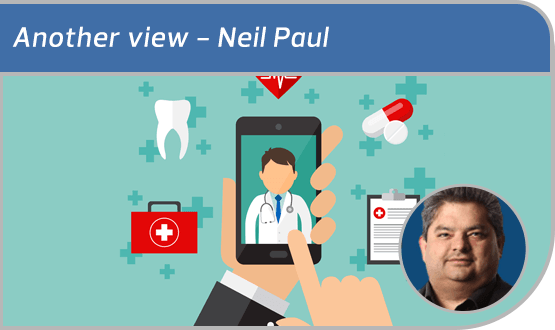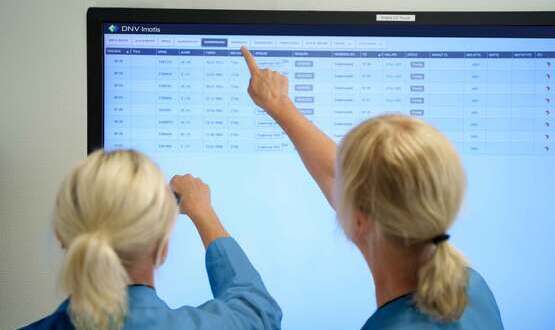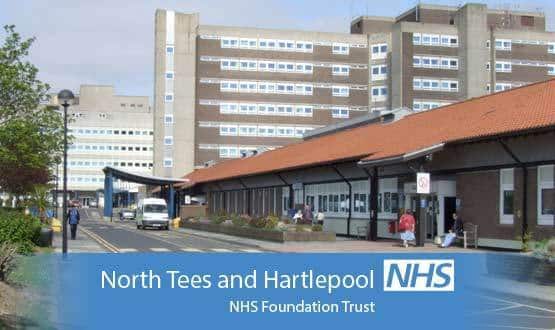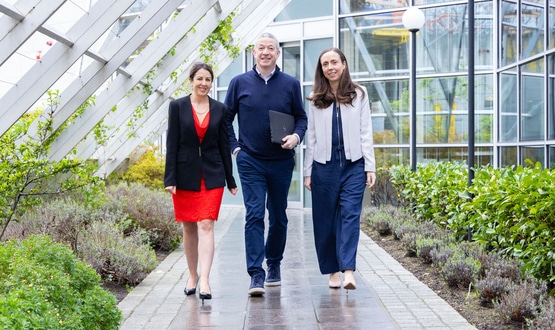Another view: of private doctor apps

I saw Uber for the first time the other day. I know that’s probably quite sad, but there was only one driver who responded when the person I was with put out the call, so I don’t think it’s as popular in Cheshire as it has been in London.
Anyway, it reminded me of all the private doctor apps out there. Some of them arrange a video consultation, some email, some arrange home visits. They all seem to have a pool of doctors willing to work privately. I know some have been criticised for very fast consultations, though the counter to that is the IT asks the questions and the GPs just make a quick decision. This is how we do a lot of medication queries in my practice, so I get it.
A capital difference
I’m unclear whether doctors do this full time, or if they do it as extras and fit it in in between other stuff. They seem to mostly be London-based, perhaps because there isn’t much of a locum workforce outside of the capital.
Perhaps it’s a chicken and egg thing. Unless you have enough doctors on your books in an area, patients won’t find a convenient appointment so will stop using it. Maybe outside of London the population’s needs differ: they’re less transient, and perhaps commute less.
Having said that, one of my ex-patients contacted me once she moved to Liverpool to say she had used one of these apps after she was unable to get seen by her new GP. So I think the need for access is universal and perhaps it’s the volume thing.
Of course, what people sometimes want is to see their own GP. Fortunately – or unfortunately depending on your viewpoint – GPs can’t see their own patients privately. A hospital consultant can and often does say to a patient: “I can operate on you on the NHS and it will be x weeks. If you see me privately it will be next week.”
Many GPs I know would stay late or come in early to see people privately if they could charge. Some of you may see this as wrong – and I’m not saying it’s right – but it’s just a quirk we can’t do this. However, there is nothing stopping us as a practice hiring these private services to relieve our workload.
So why not authorise these services on the NHS? This is where the GP in me starts to worry. Perhaps it’s just protectionism. But given that primary care is based on the principle of a registered list and in theory tries to do more than just treat sore throats, and given these services don’t have access to the records and so I think they would at best become virtual walk in centres, I worry they diminish the quality of general practice.
A different kind of patient history
I could tell you stories of me seeing patients over the last 17 years – starting with them when they were teenagers, seeing them back from university, starting or trying to start a family and then developing something nasty – where my pre-existing relationship with them has made finding a serious condition easier and has I think made their “experience” better.
However perhaps this is a rose-tinted view of general practice that harks back to Dr Finlay’s days. Perhaps – like the recent American hat aimed at Trump supporters – “General practice was never that great!” Perhaps people are willing to trade relationships for access and speed. So perhaps the trick for these services is to link to existing general practice, not run alongside.
Their role would be to take workload off GPs, freeing up GPs’ time to spend on the more complicated patients. Should CCGs or GP federations, even practices, be using these services as overspill? We now have an overspill typing service, where if local secretaries are too busy we can outsource. Why not do the same with doctors?
I know of some practices which use 111 to triage their calls, with varying degress of success. Why not when busy switch the work to one of these services? Giving them access to records would be the key to good quality, though I suspect some would worry about the unknown doctors causing complaints or over-prescribing and over-referring.
Time to band together?
To get around this, perhaps in-house is the way to go: use the platform not the people. Find your own people.
Interestingly, several surgeries are now banding together to change the way they do on-call during the day, particularly if in one building or town. They’re trying to gain benefits from doing it at scale and doing it with skill mix.
Many are talking about amalgamating their urgent work and having one practice covering it each day, or having a centrally staffed hub that takes on this work. Perhaps these apps can provide a service that allows a distributed workforce to deal with patient demand. So the staffing comes from the practices or federation – in house – but not necessarily all from the same practice.
Perhaps the apps need to be locally branded so we aren’t confusing our patients. So my federation might have one that connects our patients with our doctors or others for advice, but trips over to a select group of their GPs who have data sharing in place who can take on the slack. In short, perhaps we do need an Uber for primary care.





2 Comments
I think these new ways of working are the future and they should be happening now, why aren’t they ? in MPHO we must all work together to make them happen as quickly as possible. I trust and respect GPs but they provide a service, that’s all, they do not manage my life (and I am happy to manage my own health thanks), that is down to me. Over the years I have had very good service from some doctors and I have had very bad service from others, my choice, just give me the information I need. things are changing now and IF PEOPLE HAVE ACCESS TO MORE OF THE INFORMATION (processed data)THEY NEED, THEY WILL NEED TO LEAN ON THE nhs AND SOCIAL CARE LESS.
It seems to me that all these alternative ways of seeing patients will ultimately fail as a solution for the entire NHS for the same reason: they are all sleight of hand. The bottom line is simple: you can’t get a quart into a pint pot – not if you divide the quart into 1ml aliquots; not if you pour it very quickly into the second receptacle; nor if you freeze it, boil it, shrink it, or camouflage it. Patient demand is like gravity — it doesn’t go away.
The bottom line is simple: does the supply meet the demand? If not, then overall it won’t work. Collect all the fit young things and treat them using an App? Great…. but the demand from the elderly, chronic ill and multiple LTC patients hasn’t gone away, so that’s not a solution. Reorganise everyone into bigger units — but the total time available for looking after them hasn’t increased, so that won’t work either. Make everyone pay? That won’t work if it doesn’t reduce the demand.
The ONLY ways to make the NHS work are (1) to reduce demand (fewer citizens, better educated ones, less demanding ones) (2) increase the workforce (3) create more efficient ways of dealing with particular illnesses.
Nothing else will work, at all, so we really shouldn’t be wasting our time trying to do it. If supply of healthcare doesn’t meet the demand, then the NHS fails. Simples.
Comments are closed.